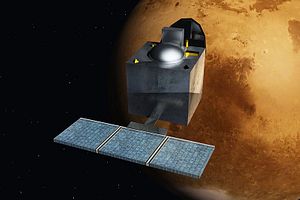The past years have been groundbreaking for the Indian Space Program. In 2014, its first interplanetary mission, Mangalyaan, entered into Mars orbit, putting the Indian Space Research Organization (ISRO) into the select group of space agencies to reach Mars, and the first one to succeed entering its orbit in the first attempt. In 2015, the agency launched its first space observatory, Astrosat, aimed to observe distant planets and astronomical objects, a first-class technology mastered by few countries. Last year, India also set a record by launching 20 satellites at once, many from other countries. However, India could go one step further in the space business and engage in a much more rewarding activity for its ambitions: taking the lead in shaping norms for outer space activities.
As the ISRO achieved a new world record in February – the launching of 104 satellites on a single rocket – Prime Minister Narendra Modi should consider giving new focus to the diplomacy surrounding the use of space. India has not been very active in the ongoing international efforts to update the outer space regime. It has not supported the European Union’s proposal for a Code of Conduct for Outer Space Activities, and it also watched silently while China and Russia joined efforts to issue a draft for a treaty on the prevention of the placement of weapons in outer space. However, if India aims for greater recognition in the international scenario, it is about time to take a more proactive stance on the creation of new norms and rules in global governance.
The existing international space regime includes several outdated treaties – mainly the Outer Space Treaty from 1967 and the Moon Treaty from 1979. These documents do not deal with urgent issues for today’s space exploration, including the prohibition of non-nuclear weapons tests in space and the creation of risky debris from the destruction of old satellites. The entrance of new actors, specifically in the space communications industry, makes it increasingly difficult to coordinate the positioning of new satellites in an already overcrowded orbit. Moreover, it is still unknown how those new actors – including China and India – will behave in space: whether they will choose to follow the peaceful use of space, or whether militarization will be their path.
It is crucial for India to work actively for new norms in the current scenario because of a variety of reasons. First, India needs to consider its national security interests. The vacuum created by the slow growth of the US and Russia on space capabilities is being filled by China, whose intentions are not entirely clear. In 2007, Beijing launched an anti-satellite weapon (ASAT) to destroy an old satellite. This move, not previously notified to the international community, not only produced thousands of harmful debris in orbit, but also evidenced China’s growing military capacity. If India wants to curb potentially harmful Chinese activities in outer space, it needs to endorse rules that fit its national interests.
India also needs to promote the regulation of space activities to enhance its cooperation with other space-faring nations – possibly including China, if the two countries decide for cooperation instead of competition. Vital sectors of the economy, as finance and communications, are dependent on space technologies, which makes cooperation essential for countries in a globalized world. India is proud of the indigeneity of its space technology, but it is about time to engage in technology sharing and commercial agreements with other countries. Space technologies are economic stimulants and useful tools in communication, resource management, and disaster prevention activities, all of which are essential assets for emerging economies like India.
More importantly, engaging in and committing to the creation of a new space governance framework would project India as an agenda-setter in a field of increasing importance for international relations. As in other realms of global governance, the future of space research is in the hands of Asia.
India can promote the creation of a more comprehensive regime for the use of outer space in a variety of ways. It is possible, for example, to start discussions within organizations like the BRICS (Brazil, Russia, India, China, and South Africa), IBSA (India, Brazil, South Africa), and the Shanghai Cooperation Organization. India can also actively engage with existing forums, such as the UN Committee on the Peaceful Use of Outer Space and ongoing discussions held by the European Union on the creation of a code of conduct.
The Outer Space Treaty will be celebrating its 50th anniversary this year; 2017 might be a good year for India to start an active campaign for an upgrade in the space regime. It might be difficult for India to build a new international institution or create legally binding treaties, but it can work on the promotion and creation of new conventions, cooperation agreements, and consensual norms.
Bhavani Castro is Fellow of Indian Studies at the Getulio Vargas Foundation in São Paulo.

































